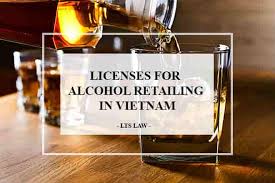Obtaining an alcohol license is a crucial step for businesses in the hospitality industry. Whether you’re opening a bar, restaurant, or liquor store, the process of acquiring an alcohol license can be complex and time-consuming. One of the most common questions that arises during this process is, “How long does it take to get an alcohol license approved?” In this comprehensive guide, we will delve into the various factors influencing the approval time and offer tips for a smoother application process.
Types of Alcohol Licenses
Before delving into the approval timeline, it’s essential to understand the different types of alcohol licenses. The categories vary widely depending on the type of establishment and the specific regulations of the state and local jurisdiction. Common types include:
- Beer and Wine License: Permits the sale of beer and wine only.
- Liquor License: Allows the sale of all types of alcoholic beverages, including spirits.
- On-Premises License: Permits the sale of alcohol for consumption on the premises.
- Off-Premises License: Allows the sale of alcohol for off-site consumption.
The type of license required depends on the nature of your business and the services you intend to offer.
Application Process
The process of obtaining an alcohol license typically involves several stages. Here’s a brief overview:
a. Preparing Documentation
Before submitting an application, it’s crucial to gather all necessary documentation. This often includes:
- Completed Application Form: Ensure all sections are accurately filled out.
- Proof of Ownership or Lease Agreement: Document proving you have the legal right to operate at the chosen location.
- Business Plan: Outline your business concept, target market, and other relevant details.
- Background Check: Personal and criminal history for all involved parties.
- Financial Statements: Demonstrate the financial viability of your business.
- Zoning Approval: Confirm that your business location complies with local zoning laws.
b. Submission and Review
Once your application is complete, submit it to the appropriate regulatory agency. The review process begins, during which the authorities assess the documentation, conduct background checks, and ensure compliance with all relevant laws and regulations.
Factors Influencing Approval Time
Several factors contribute to the varying timelines for alcohol license approval. Understanding these factors can provide insight into why the process may take longer in certain cases.
a. State Regulations
Each state has its own set of regulations governing alcohol licensing. Some states have streamlined processes with relatively quick approval times, while others may have more stringent requirements and a lengthier review period. It’s essential to familiarize yourself with the specific regulations in your state.
b. Local Jurisdiction
In addition to state regulations, local jurisdictions, such as counties or municipalities, may have their own rules and timelines for alcohol license approval. Local authorities may conduct their reviews and inspections, adding an extra layer to the process.
c. License Type
The type of alcohol license you are applying for can significantly impact the approval time. For instance, a beer and wine license may have a quicker processing time compared to a full liquor license, which often involves more extensive scrutiny.
d. Completeness of Application
Submitting a comprehensive and accurate application is crucial for a smooth approval process. Incomplete or inaccurate documentation can lead to delays, as authorities may request additional information or clarification.
Common Challenges in Approval
Several challenges commonly arise during the alcohol license approval process, potentially causing delays.
a. Background Checks
Background checks are a standard part of the approval process. Issues such as criminal history, financial troubles, or other red flags for any involved party can lead to a more in-depth review, slowing down the overall process.
b. Public Hearings
In some cases, local jurisdictions may require a public hearing as part of the approval process. This can add time, as it involves notifying the community, scheduling the hearing, and addressing any concerns raised by the public.
c. Zoning Issues
Zoning approval is a critical aspect of the process. If your business location doesn’t comply with local zoning laws, it can lead to significant delays. Addressing zoning issues may involve seeking variances or navigating complex regulatory procedures.
Tips for a Smooth Approval Process
While the approval process may seem daunting, there are steps you can take to increase the likelihood of a smooth and timely outcome:
- Thorough Research: Understand the specific requirements and regulations in your state and local jurisdiction before starting the application process.
- Consultation: Seek guidance from professionals, such as attorneys or consultants, with experience in alcohol licensing to ensure your application is accurate and complete.
- Engage with Local Authorities: Establish open communication with local regulatory authorities to address any questions or concerns promptly.
- Prepare for Background Checks: Be proactive in addressing any potential issues that may arise during background checks. This may involve providing additional context or documentation.
- Community Engagement: If public hearings are required, engage with the community early in the process. Addressing concerns upfront can help expedite approval.
Martin Frost & Hill is a law firm based in Austin, Texas. The firm specializes in Texas Alcoholic Beverage Commission and TTB permits representing alcoholic beverage retailers, marketers, importers and manufacturers in all matters related to their regulated operations and liquor license procedures.
Conclusion
In conclusion, the timeline for alcohol license approval is influenced by a variety of factors, including state and local regulations, license type, and the completeness of the application. While challenges such as background checks and zoning issues can contribute to delays, thorough preparation and engagement with local authorities can significantly streamline the process. By understanding the intricacies of the approval process and taking proactive steps, businesses can navigate the path to obtaining an alcohol license more efficiently.




